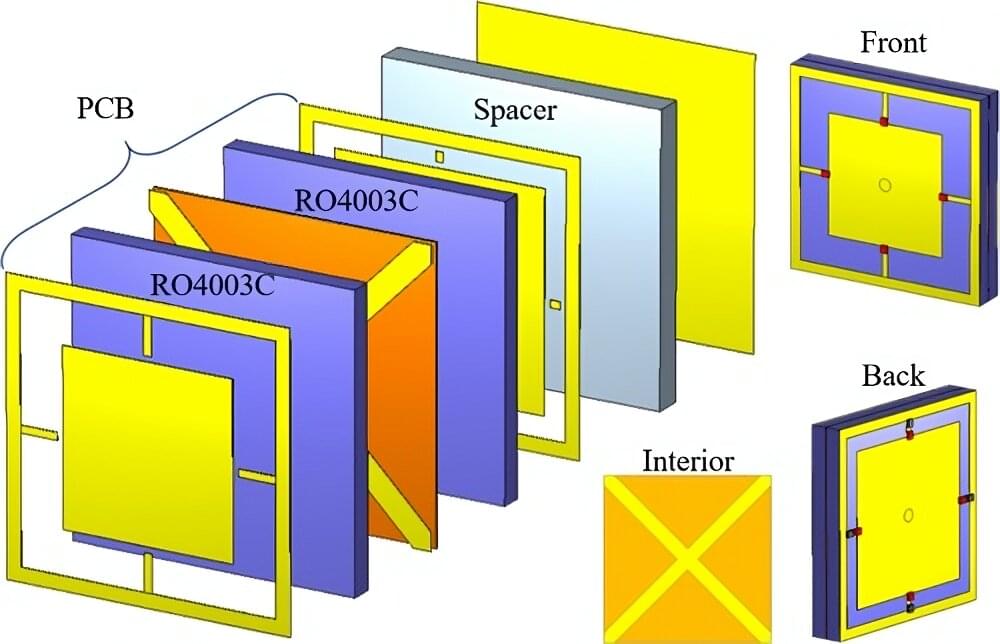Cities can be obstacle courses for communications signals. A radio signal must travel from a cell phone to a router to a cell tower, and onward to its recipient—all while bouncing between walls, buildings and other structures. When it hits an obstacle, the radio wave gets scattered, diminishing the signal. This in turn reduces the bandwidth. At the same time, the signal must compete with the bandwidth needs of numerous other devices in the area. All this reduces the amount of information the signal can communicate.
Newly developed small, lightweight reflective surfaces could revolutionize communications in crowded environments by providing unprecedented control over electromagnetic signals, like radio waves.
Historically, engineers have used repeaters—electronic devices that receive a signal and retransmit it—to help these communications signals cover longer distances and get around obstacles, but this technology is reaching its limits. Now, engineers are looking to modify the behavior of the communications signal itself. Enter reconfigurable intelligent surfaces (RIS).
